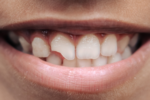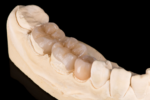Dealing with a dental issue can be difficult, particularly if it necessitates extensive treatment like a root canal or dental crown. Patients with damaged or decaying teeth are often advised to have these treatments, but knowing which technique is best for you will help reduce any doubt and help you make an educated choice.
Root Canal Treatment
Root canal treatment, also known as endodontic therapy, is a procedure used to preserve and repair badly decaying or diseased teeth. The internal pulp of the tooth is removed, the root canals are cleaned and disinfected, and finally, the canals are then filled and sealed to stop the spread of infection. When the tooth’s structure can still be restored, a root canal is often advised.
Indications You Need a Root Canal
- Pulp infection:
Root canal therapy in Mill Bay can be the best method for saving the tooth when the pulp of a tooth becomes infected or inflamed as a result of extensive decay or trauma. - Abscess formation:
A root canal can help treat the infection and avoid future difficulties if it gets to the root tip and creates an abscess. - Deep decay:
A root canal can be necessary to treat severe tooth decay that has reached the inner pulp in order to get rid of the infection and restore the tooth’s function.
Benefits
- Preserves the natural tooth structure and function.
- Prevents the spread of infection to surrounding teeth and gums.
- Eliminates the need for tooth extraction and potential tooth replacement.
- Relieves pain and discomfort caused by tooth infection.
Dental Crown Treatment
The whole visible portion of a tooth above the gum line is covered with a dental crown, sometimes referred to as a dental cap. It is used to repair, strengthen, or beautify a tooth that has been injured. Dental crowns near you can offer longevity and a natural-looking appearance since it is created specifically to match the natural tooth’s shape, size, and color.
Indications You Need a Dental Crown
- Tooth fracture: Where a simple filling may not be adequate, dental crowns in Mill Bay can heal a tooth with significant fracture or damage.
- Large dental filling: A crown can give a tooth more support and security when a big filling compromises its structural integrity.
- Cosmetic enhancement: Dental crowns can be used cosmetically to cover teeth that are badly discolored or deformed and enhance the overall appearance of the smile.
Benefits
- Restores strength, function, and appearance of a damaged tooth.
- Enhances the aesthetics of the smile.
- Can be a long-term solution with proper oral hygiene and care.
- Provides protection against further decay or damage.
Choosing the Right Treatment
The severity of tooth damage, the presence of infection, and your overall oral health all play a role in the selection between a root canal and a dental crown. It is essential to speak with a knowledgeable dentist who can examine your unique situation and offer expert advice.
Sometimes root canal therapy near you is required to treat an infection and save the tooth, and then a dental crown is placed over the recovered tooth to reinforce and protect it. In other cases, a dental crown by itself could be sufficient to fix aesthetic issues or offer structural support.
When faced with the choice between a root canal and a dental crown, understanding the purpose and benefits of each treatment can help you make an informed decision. Keep in mind that only a dental expert can provide an accurate diagnosis and recommend the best course of action based on your unique needs. You can keep a healthy and attractive smile for years to come by prioritizing your oral health and getting expert assistance from a dentist near you.
Set Up an Appointment Today!
Visiting Mill Bay Dental is an excellent step toward determining the right treatment option for your dental needs. Our experienced team will conduct a comprehensive examination, assess your oral health condition, and discuss your concerns and treatment goals with you. Whether you require routine preventive care, cosmetic enhancements, or restorative processes, our dental practice is dedicated to delivering personalized and quality dental solutions.
Arrange a visit with our dentist in Mill Bay! We are here to guide you toward optimal oral health and a beautiful smile.
FAQ’s
1. Can a tooth have both a root canal and crown?
Yes, a tooth can have a crown and a root canal at the same time. A crown is a protective covering that is placed over the tooth to restore its strength, shape, and appearance. A root canal is done to remove diseased or damaged pulp from the tooth. When a tooth has had a root canal, a crown is often recommended to offer long-term support and protection.
2. How long do root canal and crown treatments typically last?
Depending on the complexity of the situation, root canal treatment can take one to two appointments, but this might vary. Additionally, crown implantation normally necessitates at least two sessions. It’s important to remember that the durability of these treatments varies depending on things including dental cleanliness, routine maintenance, and individual situations.
3. Are root canals and crowns painful?
Since local anesthetic is used to numb the area, neither a root canal or crown insertion are unpleasant experiences. After surgery, it is common to feel some minor soreness or sensitivity, which can be treated with over-the-counter painkillers. These measures aim to relieve the infection or damage-related discomfort and restore the tooth’s functioning and health.








